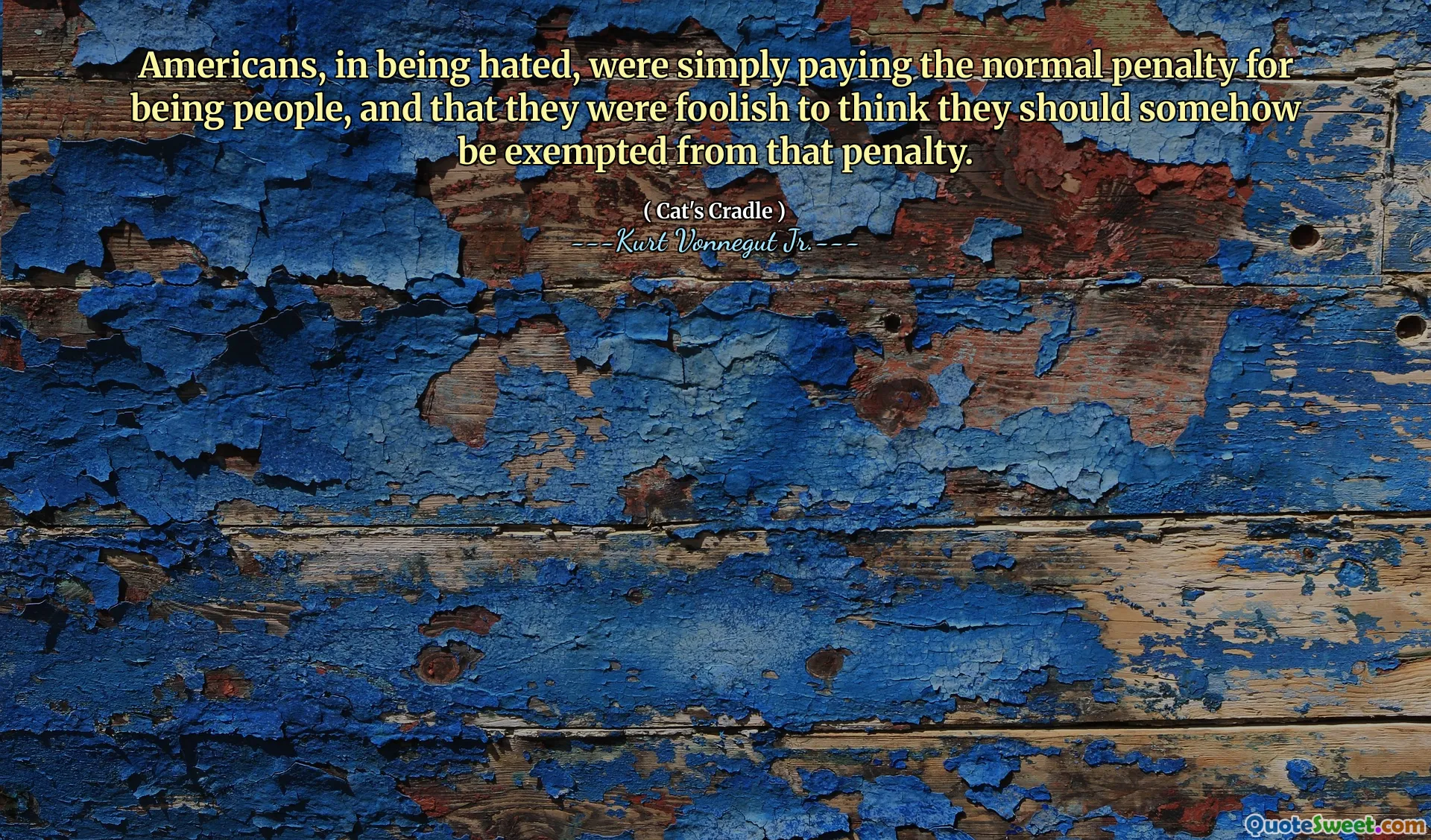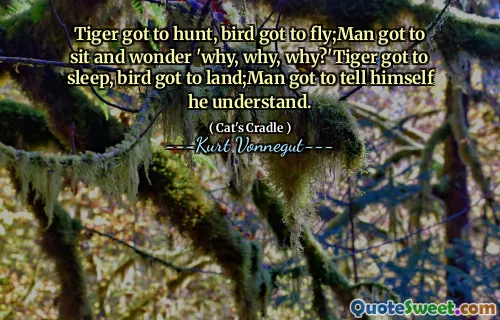
Americans, in being hated, were simply paying the normal penalty for being people, and that they were foolish to think they should somehow be exempted from that penalty.
Kurt Vonnegut Jr. in his book "Cat's Cradle" explores the idea that Americans, by facing hatred, are experiencing a common consequence of being part of the global community. He suggests that every society encounters negativity and criticism, and it is naïve for Americans to believe they are immune to this natural human response. Vonnegut’s perspective emphasizes that hate is not unique to America, but rather a universal phenomenon that reflects the complexities of human interactions.
This viewpoint highlights the interconnectedness of people across the world, reminding readers that no nation is above reproach. By acknowledging that hatred is a typical response towards individuals or nations, Vonnegut encourages a deeper understanding of global dynamics. Ultimately, he advocates for humility, suggesting that accepting this reality can lead to more meaningful engagement with others, rather than a defensive posture of exceptionalism.











